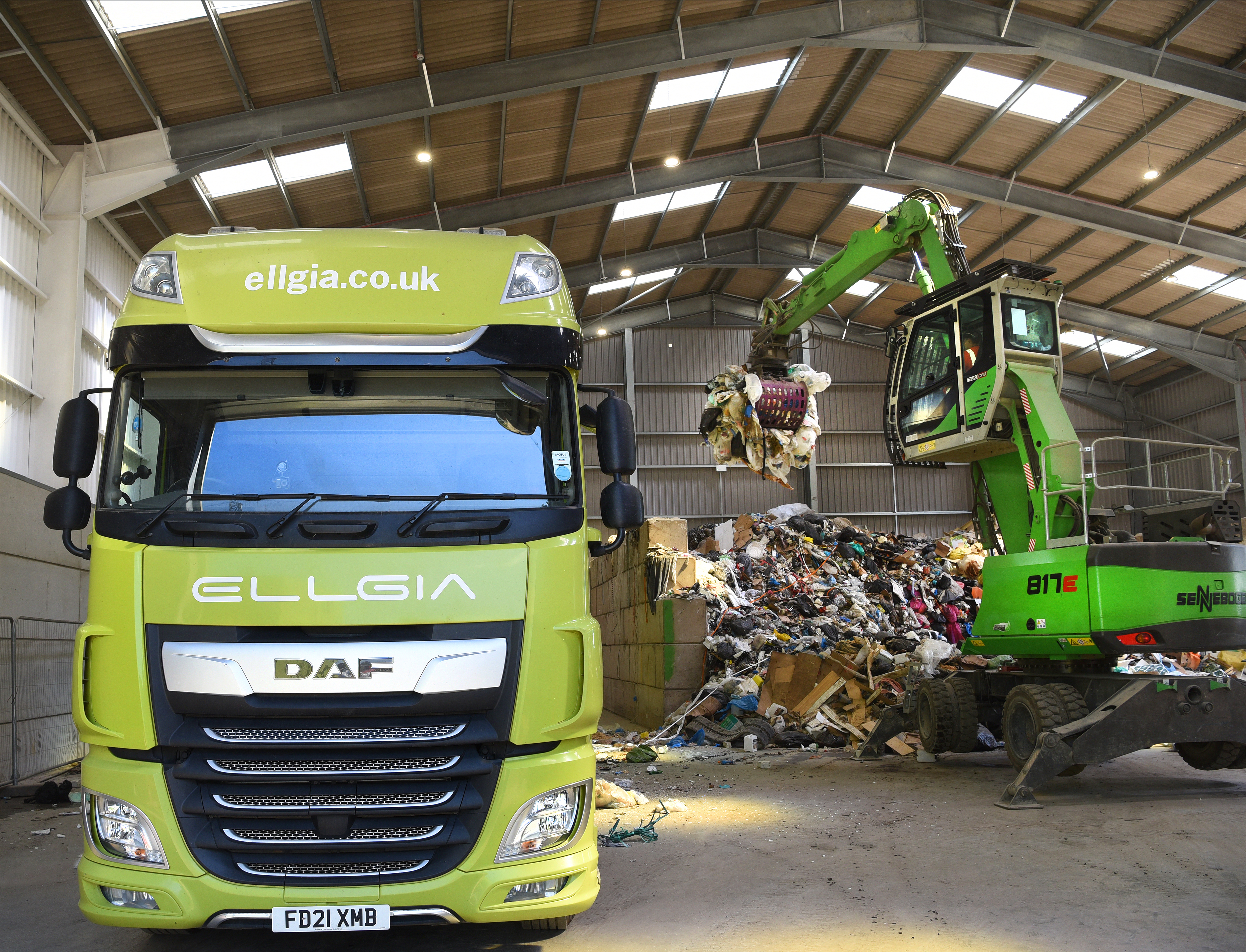Understanding the Scale of Contamination
A significant proportion of UK households unintentionally contaminate their recycling bins, and businesses face remarkably similar challenges. What makes this particularly concerning is that most contamination occurs despite good intentions, as people try to recycle correctly but inadvertently undermine the entire process.
The most common contaminants we encounter include drinking glasses, food-contaminated packaging with residue still attached, non-recyclable plastics mixed with recyclable materials, textiles, and batteries or electrical items.
For businesses, contamination presents additional complexity. With multiple team members, visitors, and varying levels of waste awareness, maintaining clean recycling streams requires robust systems and ongoing attention.
How Contamination Creates a Domino Effect
Here's what many business owners don't realise, contamination doesn't just affect the contaminated item, it can destroy entire collections. When contaminated materials reach sorting facilities, several problems occur:
Clean materials become contaminated through direct contact. Food waste can spoil paper and cardboard, while broken glass makes other materials unsafe to handle and process.
Sorting equipment gets damaged, leading to costly repairs and operational delays. Textiles wrap around machinery, batteries can cause fires, and inappropriate items can jam conveyor systems.
Manual sorting becomes necessary, dramatically increasing processing costs that ultimately get passed back to businesses through higher collection charges.
Entire loads require reclassification, meaning your carefully separated recycling becomes expensive general waste requiring landfill disposal.
The Financial Impact on Your Business
The financial consequences of contamination extend beyond immediate disposal costs:
Increased Collection Charges: Contaminated recycling must be collected as general waste, which is typically more expensive than recycling collection.
Lost Recycling Value: Many waste management agreements include rebates for high-quality recycling. Contamination eliminates these benefits, removing potential savings.
Emergency Collection Costs: When contaminated recycling is refused, businesses may need emergency general waste collections, which are charged at higher rates.
Compliance Implications: Under Simpler Recycling regulations, businesses must maintain proper waste separation. Contamination issues can lead to enforcement action.
Operational Disruption: Dealing with contamination incidents diverts management time from core business activities.
Environmental Consequences
Beyond immediate costs, contamination has serious environmental implications. When properly sorted recyclable materials can end up in a landfill due to contamination:
- Carbon emissions increase significantly. The UK currently save 18 million tonnes of CO₂ annually through recycling
- Valuable resources are permanently lost instead of being recycled into new products
- Circular economy goals are undermined
Common Contamination Scenarios We Encounter
In our work with businesses across the region, we regularly see how contamination impacts different sectors:
Office environments often struggle with food waste entering recycling bins, particularly around kitchen and break areas. When this happens repeatedly, it can significantly increase monthly waste costs as collections need to be reclassified.
Manufacturing and industrial sites frequently face challenges with batteries and small electrical items contaminating metal recycling streams, leading to emergency collection requirements and lost recycling value.
Retail and hospitality businesses commonly experience issues with packaging materials and broken items contaminating recycling streams, which can impact costs across multiple sites when not addressed systematically.
Prevention is More Cost Effective Than Reaction
The economics of contamination prevention are compelling. Investing in proper segregation systems, team training, and regular waste audits typically costs far less than dealing with ongoing contamination issues.
Consider a business spending heavily each month on contamination-related costs. By comparison, preventive measures such as training and audits can reduce these costs significantly, helping businesses save money and maintain efficiency.
Why Contamination Prevention is Now Business Critical
With Simpler Recycling regulations in force and environmental scrutiny intensifying, contamination prevention has moved from beneficial to essential. Businesses that master segregation and prevent contamination have predictable waste costs, enhanced environmental credentials, regulatory compliance confidence, and operational efficiency through uninterrupted collections.
How Ellgia Helps Businesses Eliminate Contamination
At Ellgia, we work with businesses across our region to help them manage waste effectively and avoid contamination issues. Our approach focuses on practical solutions:
Waste Audits: We can assess your current waste management practices to identify potential contamination risks and opportunities for improvement.




